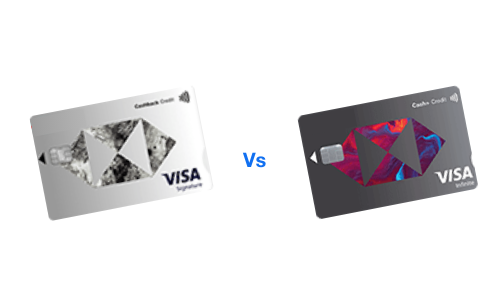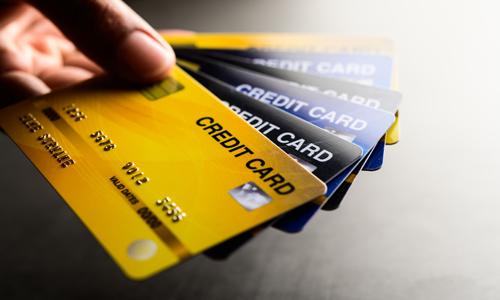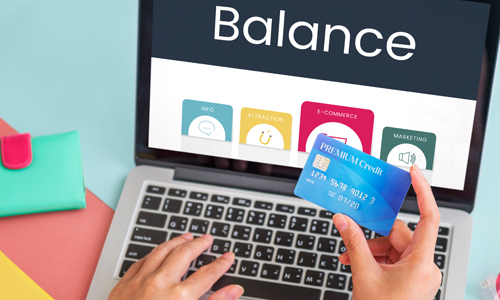Credit Card Billing Cycle in UAE

While credit cards certainly make for a valuable asset, you need to have a fundamental understanding of their features to ensure that you get the most out of them. It is advisable to become familiar with a variety of phrases as a cardholder, and one of the most useful places to start is by learning what your billing cycle is.
The billing cycle is related to the payment due to your card provider after using your credit card to make purchases, as the name suggests. By being aware of the details, you can save a significant amount on interest and late penalties.
What is the Billing Cycle?
When referring to the period between one billing statement date of issue and the next, the term generally used is the "billing cycle." Although a billing cycle is often monthly, it may change based on the goods or services provided.
Billing cycles help banks determine when to charge you and assist in estimating future income. For you, as a user, billing cycles can help in managing your expectations of payment schedules so that you effectively save your money.
The billing cycle or billing period of a credit card refers to the length of time between the closing dates of your most recent statement and your subsequent statement. When you use your credit card, you have a deadline for paying back the money you borrowed from your bank. Billing cycles are used for this financial instrument (and similar ones) to keep track of how long it will take to pay back the borrowed money.
Understanding Your Credit Card Statement
You should have a basic understanding of how your credit card statement functions before you can decide when and how much to pay.
Your bank sends out a statement once a month that includes the following information -
- How much did you spend on your card during the most recent billing period?
- How much do you still need to pay from your past credit card statement (if this number is not AED 0, interest will be added to the sum due)?
- The whole amount owed
- The minimum amount that you must pay
Several financial institutions provide a grace period for paying the credit card debt of between 10 and 20 days. While consumers tend to pay their bills on time for the majority of the time, not everyone is confident that they will be able to recover the money within the given time frame.
Length of a Credit Card Billing Cycle
The payment submission deadline is the day (each month) by which you must pay off any outstanding balance on your credit card. In the UAE, the billing cycle is between 28 days and 31 days. You can pay off any outstanding credit card balance by or before the due date - if you forget, late payment penalties and additional costs will apply.
What is the Minimum Payment to be Paid?
The minimum payment required on your credit card each month is the amount that has to be paid in whole by the due date. It is crucial to remember that to avoid incurring interest on the amount billed, you just need to pay the bare minimum amount required before the deadline. By the following billing cycle, the balance can be settled.
The minimum amount due, or MAD, is set by the company that issues your credit card. Your monthly credit card bill includes the minimum amount owed each month. It should be remembered that the MAD often equates to 5% of the entire amount that has not yet been charged to your credit card. If you merely repay the MAD, the outstanding amount and any associated finance costs will be rolled over to the following statement.
How Does the Credit Card Billing Cycle Work?
Have a look at the points to understand how billing cycles work -
- The day of the activation of your credit card is the first day of your credit card's billing cycle. Your statement is zero on the first day.
- If you shift any amount to your new credit card, the balance transfer fees may appear on your account.
- All of your transitions would now be noted in your credit card statement starting on the day it was activated, and the expenses incurred would be applied to the credit card account.
- If you use your credit card to withdraw money, the money withdrawal fees will also appear on your statement.
- Your credit card bill will show the amount repaid to the credit card in the format of a fuel fee waiver, reversal of the amounts paid, and so on.
- It’s worth noting that purchases made beyond the end of your credit card billing cycle would appear on your statement the following month.
Important Things to Consider for Credit Card Billing Cycle
Here are a few things to keep in mind with respect to a credit card billing cycle -
- The billing cycle for a credit card is usually 28–31 days.
- Regardless of the number of days per month, the length of the billing cycle is the same for all of them.
- Each billing cycle has a deadline, which is the precise day by which you must pay off all of your credit card balances.
- You have plenty of time to complete the payments as your due date is 21 days after the end of your billing cycle.
- The grace period is the length of time between your billing cycle and the final payment.
- If you repay your credit card bills within the grace period, no interest will be charged. If you don’t, increased interest rates will be applied to the amount billed.
- On the first sheet of your monthly credit card statement, you will find a listing of the credit card billing cycle.
Impact of Credit Card Billing Cycle on Your Credit Score
Your credit ratings are not directly impacted by the length and time of your billing cycle. However, being aware of when your payment cycle finishes is crucial as this is the period of the year when credit card companies typically submit information about your account to credit bureaus. Your credit reports, which serve as the foundation for your credit ratings, will contain the details as submitted by the provider.
The stated balance is another crucial aspect here as it affects your credit use rate, with this ratio being computed by dividing the account's amount by its credit limit. A high utilisation ratio can lower your credit ratings.
Keep in mind that even if you pay your credit card account in full each month, you could still have a high utilisation ratio since credit card balances are frequently reported at the conclusion of each billing cycle. However, if you are aware of the end date of your billing cycle, you can pay off the account's balance in advance, reduce the reported balance, and perhaps even raise your credit Score by reducing your utilisation ratio.
Can You Change Your Credit Card Billing Cycle?
If you request a modification of the due date on your credit card statement, the billing cycle will be adjusted automatically to reflect the new due date. Before requesting a modification, though, be sure to review the company policies as there might be restrictions on how frequently you can do so. In addition, the adjustment could not take effect for a few billing cycles.
The interest rate, grace period, or amount of interest accrued on your account will not change if you choose a different due date. However, monitoring your payments can be made simpler if all of your invoices were due on the same day each month.
Related Link -
| How Do Credit Cards Work? |
| How Does a Credit Card Interest Work? |
| How to Make the Most of Interest-free Periods in Credit Cards? |
Frequently Asked Questions
Credit card billing cycles generally range between 28 days and 31 days.
You cannot change your billing cycle due date as it is pre-decided by the credit card provider when your new credit card is activated.
Any activity done using a credit card has an influence on your credit score. If you pay the credit card dues on time, your credit score improves - failing to do so can have a negative impact on your score.
The grace period refers to the duration between the billing cycle and the due date.
Your monthly credit card statement will show your credit card's billing cycle and the due date. On the initial section of your monthly credit card statement, these two dates would be shown.
Interest will be charged on your bill at a hefty rate if you don’t pay your credit card bill by the due date. It should be mentioned, nonetheless, that you should at least make the minimum payment required on your credit card by the deadline.
The minimum monthly payment is simply the least amount that you must pay each month toward the unbilled balance on your credit card. To prevent late fees on your credit card, you must always pay the minimum amount due.
More From Credit Cards
- Recent Articles
- Popular Articles


















